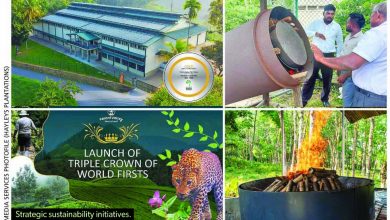BOOKRACK
President Vladimir Putin is apparently religious and a supporter of the Russian Orthodox Church. Author Tim Marshall wonders if before retiring to bed, Putin asks God: ‘Why didn’t you put some mountains in Ukraine?’
It’s a simple question but rich in meaning and explains why Putin has invaded Ukraine. Russia feels safe with other countries with whom it shares borders but unsafe with Ukraine’s aim to join NATO. To the west are plains that make Russia vulnerable.
Putin is not merely looking at the present; he wants to go down in history as the man who clinched Russia’s security for future generations. Some claim he has blood cancer and death may be a matter of time… so this may explain his behaviour.
The author uses the plains of Ukraine and a perception of insecurity as an example to expand his theory on geography and global politics. He describes how landscapes imprison their leaders, and points to the Athenians, Persians and Babylonians as other examples.
Marshall concentrates on Russia and rightly so, as it’s the largest country in the world, occupying 17 million square kilometres. In 1939, Sir Winston Churchill said: “It is a riddle wrapped in a mystery inside an enigma.”
The author points out that few go on to complete the thought, which continues: “But perhaps there is a key. That key is Russian national interest.”
Seven years later, Churchill noted: “I am convinced that there is nothing they admire so much as strength; and there is nothing for which they have less respect than for weakness – especially military weakness.”
Putin was not going to take things lying down when the West began to help pro-Western elements in Crimea in 2014. “If you compress the spring all the way to its limit, it will snap back hard,” he said. First, it was Crimea and now it’s Ukraine.
China has ambitious plans for its immediate neighbourhood. The takeover of Tibet, and expansion of China’s roads and railways, are marvels of engineering – a feat that Europe’s engineers who cut through the Alps said couldn’t be done.
This takeover was due to China’s fear of India. The Himalayas run the length of the Sino-Indian border and separate the world’s two most populous countries.
It’s the geopolitics of fear that prompted China to prevent India from commanding the heights of the Tibetan Plateau. This could have been used as a base from where to push into the Chinese heartland and take control of its three great waterways – the Yellow, Yangtze and Mekong Rivers.
New Delhi considers the construction of modern roads to mean that China’s Red Army has access to the border area with India and is a threat to the Siliguri Corridor, which is also known as the ‘Chicken’s Neck.’ This is a narrow stretch of land above Bangladesh that joins the west of India with the east.
Chinese Prime Minister Zhou Enlai was once asked by US President Richard Nixon: “What is the impact of the French Revolution?” Zhou replied: “It’s too soon to tell.”
Interestingly, it was French Emperor Napoleon Bonaparte who said: “Let China sleep. For when she wakes, the world will tremble.”
Beijing is quiet at the moment but it’s making noises about its claim on Taiwan. As Marshall points out, the US will come to Taiwan’s aid if China invades; but if Taipei declares independence, then America isn’t bound to do so. The Chinese are also claiming virtually the whole of the South China Sea and mineral resources that lie in it.
Another factor to consider remains that while the US is a large nation with allegiance only to the US, the EU consists of a number of states where the stress is on the respective countries rather than the European Union as a whole. Whether this emphasis will change with the invasion of Ukraine by Russia remains to be seen.
While invasion is a reality today, any country thinking of invading the US will have to remember that Americans have millions of guns with them – in sharp contrast to any other country in the world.
The author also covers the geography – and important aspects of history and policy in Africa, India and Pakistan, the Middle East and Latin America – and provides a fresh perspective on and new insights into geographies, and why countries wage war.
He says: “Although we have broken free from the shackles of gravity, we’re still imprisoned in our own minds, confined by our suspicion of the ‘other’ and thus our primal competition for resources.”
And in the context of geopolitics in the Palk Strait, even as Tamil Nadu sends aid to Sri Lanka in its hour of need, Chief Minister M. K. Stalin is asking for the return of Katchatheevu that was given to us by India in the 1970s.







